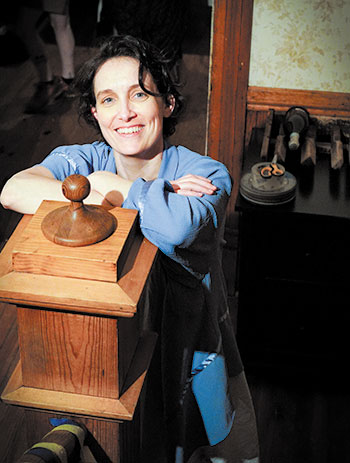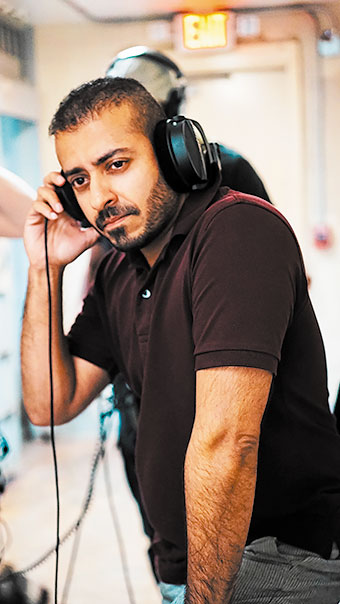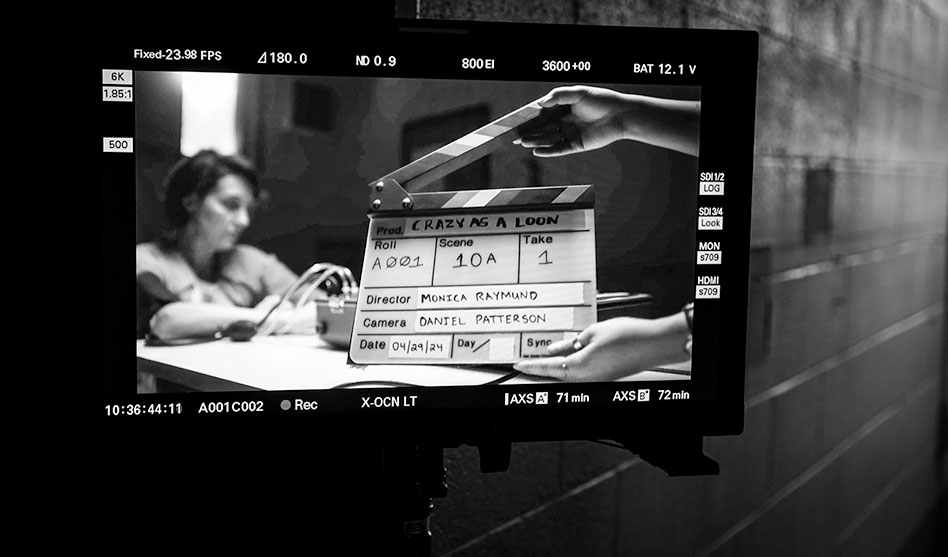JENNY BLOCK | Contributing Writer
JennyEBlock@icloud.com
The proof is in the pudding they say. That certainly seems to be the case when it comes to the short film Crazy as a Loon. The film, which falls firmly between the drama and suspense categories, serves as a proof-of-concept for a TV series based on the true events of the Lavender Scare, the “hunting down and purging of homosexuals from government jobs, which later became a template for colleges and universities and eventually seeped into the private sector,” the film’s creators explain.
Truman’s Pervert Elimination Act of 1947 was the starting point for the Lavendar Scare, which lasted until the Obama administration in 2010.
Sadly, though, the behaviors in many ways still continue today.
The creators call Crazy as a Loon an American story “The film should feel like we are living inside a history book we didn’t open in school. While it’s a love letter from the past to the LGBTQ+ community, it’s as much a love letter to the opposition about our future.”

Lisa Cordileone
The story takes place in 1953 in Washington, D.C., the night a high-level government employee is celebrating her son’s birthday with her family. “Just outside her home, a car is parked with two undercover government officials surveilling her,” the creators explain. “This film plays with the tension over whether or not this stakeout will turn into a raid —which could expose more than the perpetrators bargain for.”
The writer and a producer on the film, Lisa Cordileone, also plays the role of Mary. “I came up through the theater and Second City Chicago. Building relationships and producing original stories has become a way to work on camera, and I continue learning from the ground up,” Cordileone said.
“While my voice-over career has kept me going, so has my passion for figuring out what I have to say as an artist. And that’s when I started writing … and how this piece came about.”
The inspiration for Crazy as a Loon comes from the fact that, “these past years politically and ‘pandemically’ rooted me in fear because of the isolation,” Cordileone said. “As a history buff, I started investigating reasons why people would have been shut out from society, and that’s when I stumbled onto the true events surrounding the Lavender Scare.”
Cordileone said that through her research, she learned a great deal about those “who incite fear and those who are on the receiving end of it. This constant competition between fear and morality became a story engine.”
She grew curious, she said, about “the vulnerability that comes with letting go of fear. I know how it feels to make decisions from this place, so, for me, the protagonist’s voice is my own, and this series is me speaking up. I’ve learned that the power and freedom to live freely as we are comes from within, and no one can lock that away.”
Shaan Dasani is a producer and the executive producer for Crazy as a Loon, which is currently in in post-production and gearing up for the film festival circuit. Dasani has been in film production since he went to film school at Chapman University 20 years ago. Since then he has worked as an actor for many years, and, he says, he loves acting. “But I also love creating stories, and so in the last couple years I’ve been getting back into producing.”
Dasani hopes this film — and the potential resulting series — will have a profound impact. “There is a famous expression that if we don’t know our history, we are doomed to repeat it,” Dasani said.

Shaan Dasani
“Many people don’t know this, but the first gay rights movement in America started over 100 years ago, in the 1920s.”
In the meantime, he said “An entire generation has come and gone, and there is still a fight for rights, happening now. Legally, there are more protections today, but those protections are constantly challenged and up for debate, these days especially for trans people.”
He asks people who see themselves as outside of the LGBTQ community and thus not directly affected by the treatment of that community to think again.
“How much time, energy, and money has been spent by our elected officials introducing anti-LGBTQIA+ bills? How much of our government resources were spent policing LGBTQIA+ people during the time of the Lavender Scare? What might this country look like if we shifted that money into solving actual problems we have?”
Dasani says he hopes this film will grant audiences a means “to help us to confront our past, so that we can look at it, learn from it, and be able to ask ourselves what we need to do so that we can actually move forward as a society.” Cordileone adds, “Creating can make waves we never thought possible. I hope that [the film — and, ultimately, the series] engages and provokes conversations with unlikely audiences.”
For more information, visit SimaStudios.org/Fiscal-Sponsorship/Crazy-as-a-Loon.


